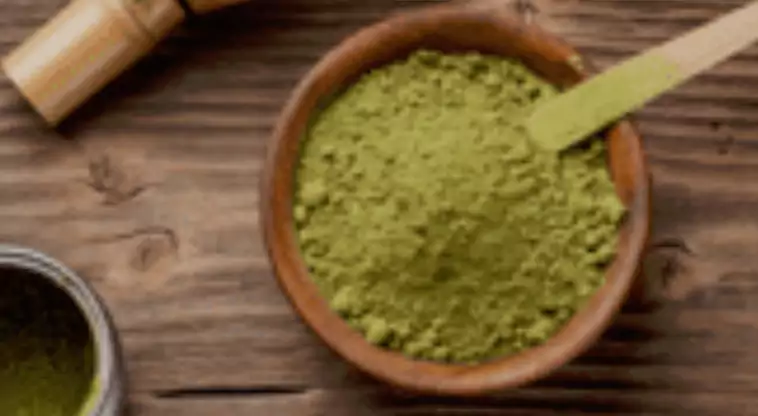Tea of various sorts have been a huge part of many ancient cultures— and matcha is no exception. In traditional Japanese culture, the preparation and serving of matcha was the center of many meditation sessions; and it’s quite obvious that there were great reasons for this! Meditation on its own has plenty of rewarding health benefits. Paired with this superfood, we can only imagine the results.
In modern society, we’ve seen a resurgence in popularity of this green powder— not only for its flavor, but its health benefits as well. With various different superfoods taking their turn in the spotlight, we’re gathering the data on what makes matcha so unique compared to the rest.
WHAT IS MATCHA?
Matcha, simply put, is a powdered form of green tea. Something unique about the growing process is that about 20 days before it’s ready to be picked, harvesters shade the plants from the sun. Why? To increase the amount of antioxidants and L-Theanine in the leaves (more on what this does later!). The leaves of the plant are then hand-selected, briefly steamed, dried, and then stone-ground into a very fine and vibrant green powder. To make the tea, a small amount of the powder is mixed into hot water and whisked until it foams.
WHAT DOES IT DO?
Think of all the great things that green tea, in general, does for your body— boosts metabolism and energy, provides tons of antioxidants (in the form of polyphenols) which help fight chronic diseases, and much more. Since matcha is such a high-quality tea and served in a much higher concentration (you’re drinking the actual leaves opposed to just infusing the water with the nutrients that it saps from the leaves), those health benefits are magnified.
The caffeine boost that matcha provides, according to avid matcha consumers, provides a more relaxed energy than coffee while still keeping you alert (thanks to the amino acid we mentioned before, L-Theanine).
Bonus: Because it is a powder, you can incorporate it into foods as well— thus the uprise of matcha-flavored baked goods and other recipes touting this ingredient.
___
If you’re sold and want to test drive this superfood powerhouse for yourself, you should know that the powders that are better in taste and house more nutrients will be a bit more costly. Don’t let this deter you— the benefits are worth it, and the pricey nature of the beast will help to keep you from falling victim to “matcha madness”— because too much of anything, even a good thing like a superfood, is not a good thing.



